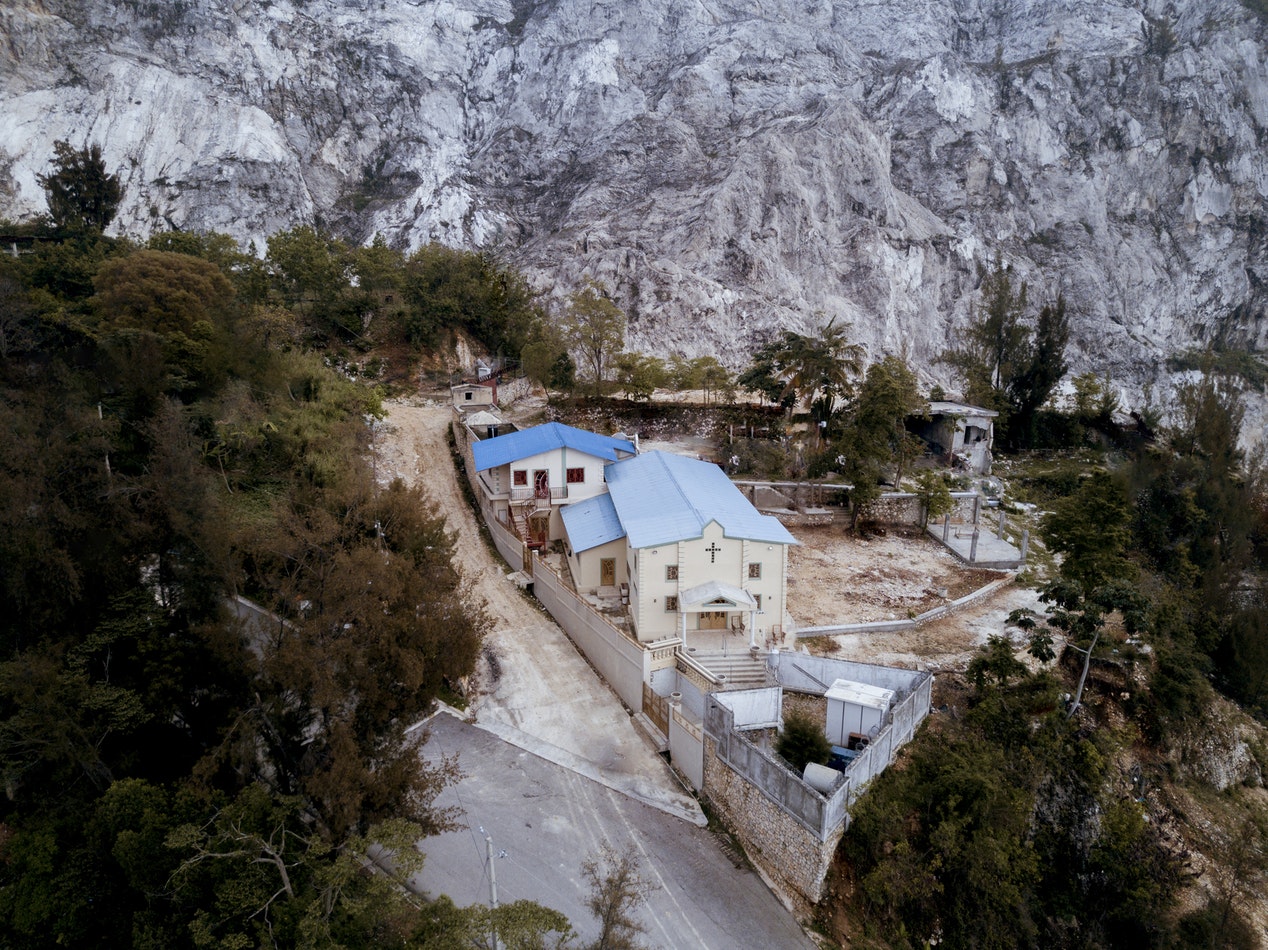Monday Morning Church

On an ordinary Monday in November, three others and I headed from Port-au-Prince, Haiti, to the country's southern area to prepare for a Work and Witness team. However, when we stopped in Saint-Michel along the way, what we saw at the Saint-Michel Church of the Nazarene wasn't ordinary. On the morning after a weekly Sunday worship gathering, the life of the church was still going on. That's because the people who make up the Saint-Michel congregation actively love and serve the people around them, every day of the week.
Possibility Amid Poverty
The trip from Port-au-Prince to Saint-Michel is only 75 miles, but takes almost three hours because the roads are pocked with cavernous potholes, forcing vehicles to creep along as passengers enjoy the beautiful scenery of lush valleys and occasional peeks of coastline along the bay.
In Haiti, most people live on the equivalent of $1 (USD) a day. Such poverty can breed desperation in the human soul. Many people cannot even think about the future because they focus on surviving today.
Yet the Haitian church is full of bright glimpses of hope.
Although Haiti is a country with real needs, it is also a place bursting with life—and possibility. Take, for instance, the 150 children who attend the day school at the Saint-Michel Church of the Nazarene. As we walked onto the property, smiling faces greeted us. Each with a story. Each with a future. Each with God-given potential. Only 50 percent of Haitian kids get to go to school, and children are among the people to whom the church ministers.
Seeing Needs, Meeting Needs
One definition of ministry is to see a need and meet that need.
That's exactly what district superintendent and pastor of the Saint-Michel church, David Eliassaint, and his congregation are doing.
For instance, in Haiti, waterborne disease is a top killer. Children walk up to six hours a day to find clean water for their families. With that in mind, two years ago the Saint-Michel church built a hand pump water well. This act transformed the community. People now come to the church to fill five-gallon buckets with usable water.
Eliassaint's friendly smile widens and his eyes light up when he talks about how the Saint-Michel church is making a difference in its community. "For youth, we want to provide a vocational school," he explains. "Every year people move to Port-au-Prince to find work...If we have something to teach them, they will stay." Currently, the church offers courses for videography and auto mechanics. "Once we get more computers, we also want to offer computer programming," he says.
Farther up the hill, we found a bustle of activity surrounding a corn and rice mill. Three hundred people come each week to grind their products so the food won't spoil as quickly. What started as a Nazarene Compassionate Ministries development project has grown into a church ministry that means the difference between health and hunger in this agricultural society. "There is another mill three kilometers away, but it costs more," Eliassaint said. "People come here and want to know why it's cheaper."
With the mill's modest proceeds, the church furthers its ministry. It uses the money to fund a microcredit program. Eight people participate at a time, borrowing 1,500 goud, about $50 (USD), that they have to repay in three months. "It's working," Eliassaint said. "We've never had anyone fail to pay back a loan."
A Place for Everyone
When Eliassaint arrived in 1999, about 150 people attended the church. Today it includes 450 members. "Every year people move, but we keep bringing people in," Eliassaint says, "They like the doctrine and how we worship—and they like how we work together to help other people. We've created a place in our church for people who are poor and for people who can't read, and we have also created a place in our church for people of means and for educated people."
We were in Haiti to help figure out how to "build churches." But churches—such as the one in Saint-Michel—are already there, whether or not they have a building structure. And they're already busy being the church. We were just there to offer a little support. Find a need and meet it in the name of Jesus. That is the recipe for an extraordinary church any day of the week.
Beth Clayton Luthye works with her husband, Curt, to serve the people of the Caribbean Region.
Holiness Today, May/June 2008
Please note: This article was originally published in 2008. All facts, figures, and titles were accurate to the best of our knowledge at that time but may have since changed.




